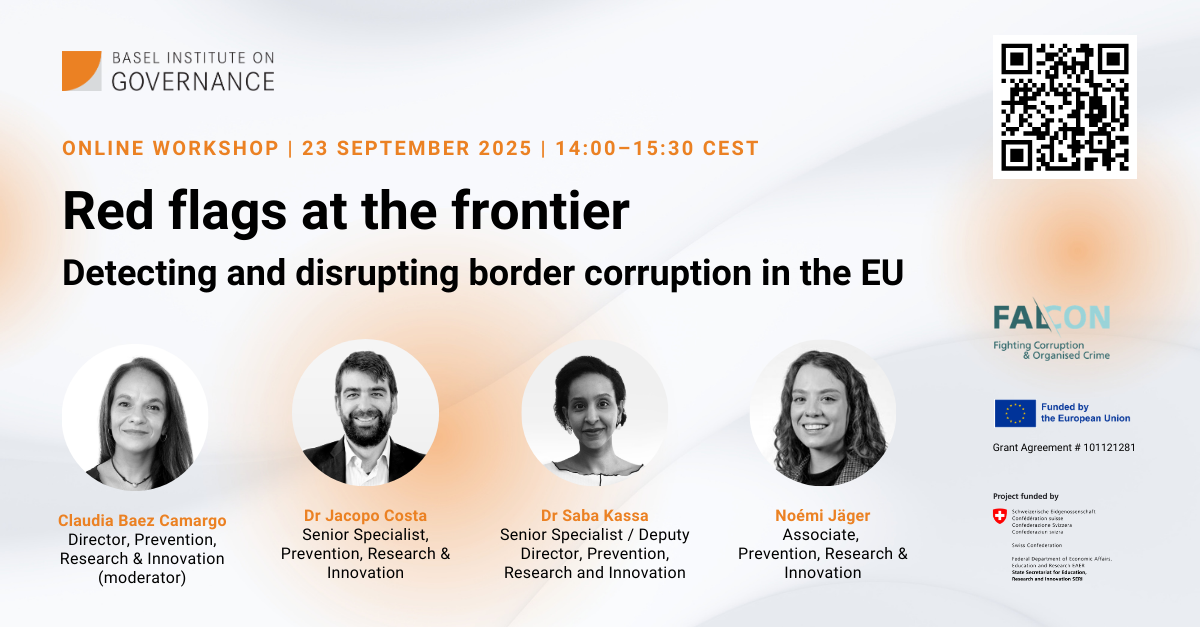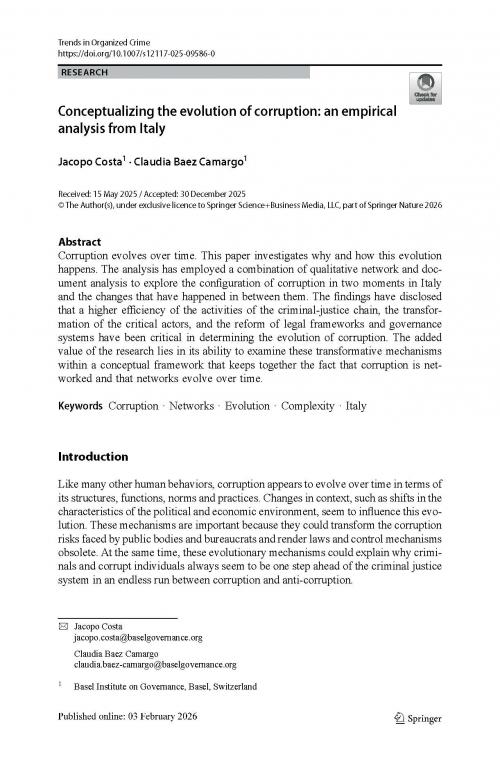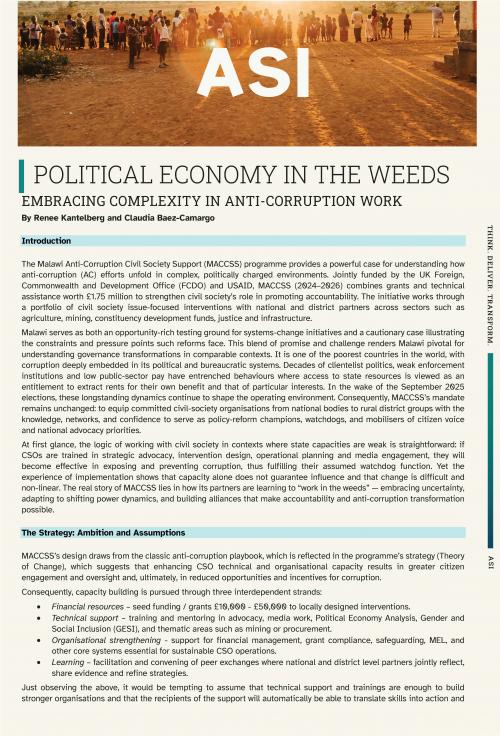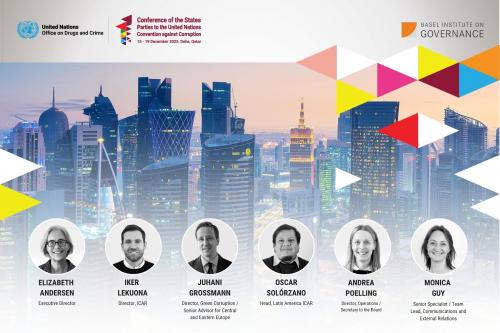Red flags at the frontier: detecting and disrupting border corruption in the EU

A hands-on workshop for enforcement and research communities
Corruption at border points remains a pressing global issue, threatening not only border integrity but also the health, safety and security of our societies. It enables illicit trafficking, facilitates organised crime and undermines trust in public institutions.
Border law enforcement professionals, customs authorities and public officials working at border checkpoints and harbours join this focused workshop that shed light on the complex nature of border corruption.
The 1.5-hour event was also open to social science researchers and technical experts developing early warning tools such as red flags and risk indicators. It was led by the Basel Institute on Governance as part of the EU-funded FALCON (Fight Against Large-scale Corruption and Organised Crime Networks) project.
About the workshop
This workshop gave frontline officials and public bodies working at or with borders the chance to better understand corruption mechanisms that may go unnoticed – from collusion and coercion between border agents and criminals to fully networked systems involving public offices and private companies. It also supported efforts to detect and prevent such corruption with practical tools and shared experience.
Participants gained insight into two in-depth case studies on border corruption: one from the Rotterdam harbour in the Netherlands and another from the Kapitan Andreevo land border crossing between Türkiye and Bulgaria. By exploring these real-world examples, the workshop presented a clear conceptual framework and touched on the changing nature of criminal tactics at EU borders.
As part of the session (not recorded), participants were guided through a scenario-based exercise that put their new knowledge into practice. This hands-on activity aimed to help enforcement staff and researchers identify red flags and better understand how to act on potential risks in fast-moving border environments.
Key takeaways
- Corruption at border crossings remains a pressing global issue that threatens the integrity of borders, as well as the health, safety and security of our societies. It enables illicit trafficking and organised crime, and undermines trust in public institutions.
- Research by the Basel Institute on Governance at the Port of Rotterdam and Kapitan Andreevo border check point in Bulgaria highlights that increased efforts to combat organised crime and corruption can lead to new vulnerabilities and the evolution of adaptive strategies: corruption risks can increase, and trafficking strategies can change. The workshop, which brought together research and practitioner communities, highlighted the emergence of similar dynamics in participants' respective fields of work.
- The ability to detect and anticipate these changes is crucial. In the FALCON project, the Basel Institute researchers and partners are exploring how leveraging technology, red flags and foresight can help.
- Countering organised crime and corruption at borders is an endless fight, but it is a fight that must continue.
Workshop leaders and presenters
- Dr. Claudia Baez-Camargo, Director of Prevention, Research and Innovation, Basel Institute on Governance (moderator)
- Dr. Jacopo Costa, Senior Specialist, Prevention, Research and Innovation at the Basel Institute on Governance
- Dr. Saba Kassa, Senior Specialist and Deputy Director, Prevention, Research and Innovation
- Noémi Jäger, Associate, Prevention, Research and Innovation, Basel Institute on Governance
Acknowledgement and disclaimer
This workshop is part of the FALCON (Fight Against Large-scale Corruption and Organised Crime Networks) project. This project is funded under the European Union’s Horizon Europe Framework Program Grant Agreement ID 101121281. The Basel Institute on Governance, as an associated partner without the right to receive funds directly from the European Research Executive Agency, has received funding from the Swiss State Secretariat for Education, Research and Innovation (SERI). The contents of this workshop are the sole responsibility of the organisers and do not necessarily reflect the views of the European Union, the European Research Executive Agency or SERI.




